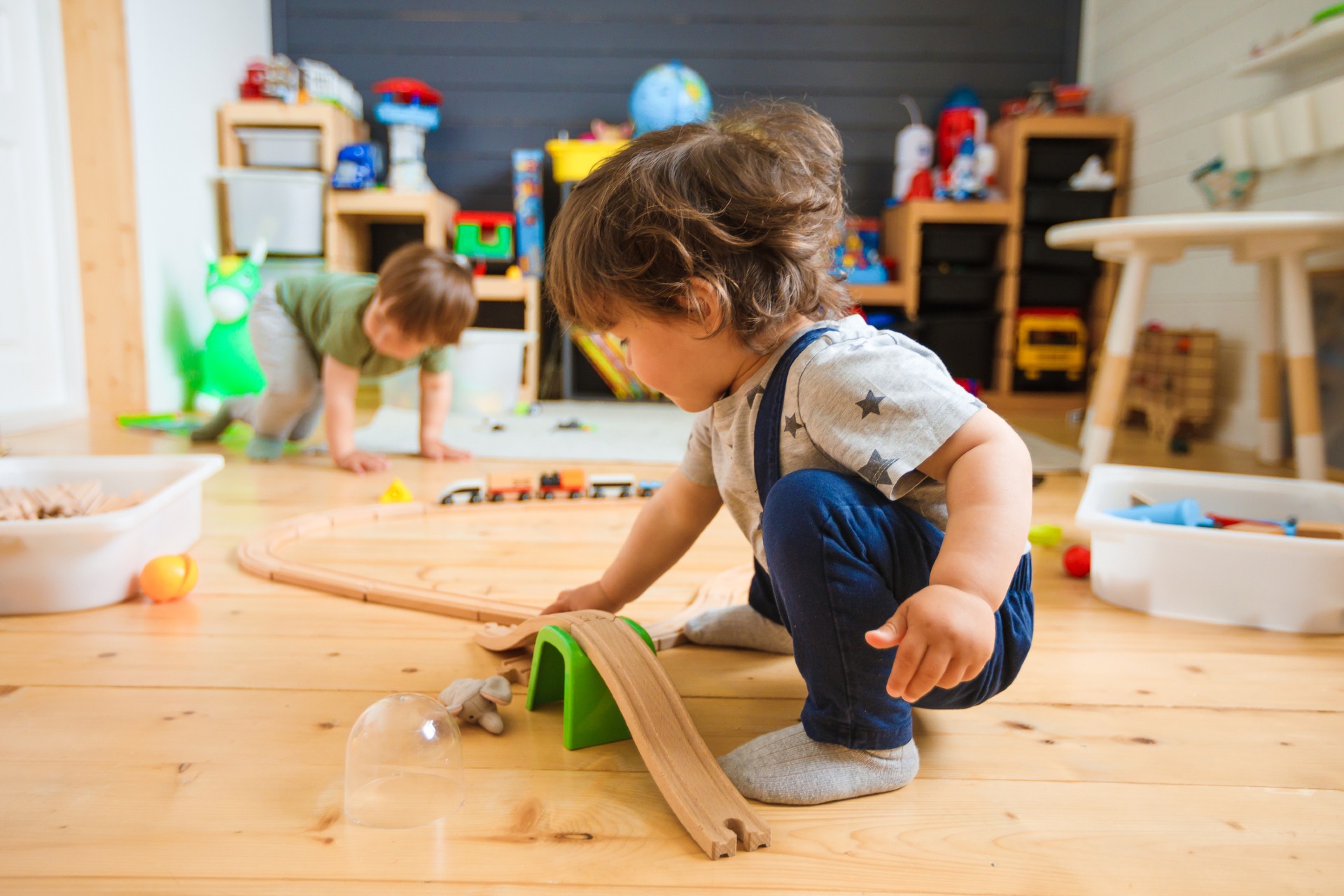Top Attributes to Look for in Toddler Daycare Near Me: Making Certain Quality and Enjoyable
Top Attributes to Look for in Toddler Daycare Near Me: Making Certain Quality and Enjoyable
Blog Article
Understanding the Relevance of Day Care for Your Toddler's Social Development and Knowing Knowledge Via Involving Tasks
The value of childcare in shaping a young child's social advancement and understanding can not be overstated, as it uses an organized atmosphere filled with appealing activities that are pivotal for very early development. As we discover the multifaceted benefits of childcare, one have to think about just how these foundational experiences influence a kid's future social interactions and general growth.

Benefits of Social Interaction
Social interaction plays a vital role in the developmental trajectory of kids, functioning as a foundation for important social abilities. Engaging with peers allows young children to exercise interaction, discover to express their emotions, and establish compassion. With shared play and teamwork, they start to understand social standards, such as taking turns and sharing, which are important components of effective interpersonal relationships.
Additionally, social communications add to cognitive development. As kids interact with their peers, they enhance their language abilities, expand their vocabulary, and enhance their capability to verbalize sensations and ideas. This exchange of ideas fosters essential reasoning, as kids learn to discuss, solve problems, and browse problems.
Additionally, social communication advertises emotional regulation. Direct exposure to numerous social situations assists kids recognize and manage their feelings, inevitably leading to greater strength and adaptability. The capability to develop friendships and accessories also improves their feeling of belonging and self-worth, which are critical for overall health.
Relevance of Involving Activities
Engaging activities are essential for promoting a revitalizing setting that enhances kids' social advancement. These activities not only mesmerize young kids's attention yet additionally promote energetic engagement, enabling them to explore their surroundings creatively. Via play-based understanding, kids create necessary skills such as problem-solving, collaboration, and compassion, every one of which are vital for building healthy connections with peers.
Taking part in interesting activities, such as group video games, art tasks, and interactive storytelling, encourages young children to express their feelings and concepts. This expression is crucial for psychological knowledge and aids them recognize the perspectives of others. When toddlers involve in these tasks with each other, they find out to negotiate duties, share resources, and team up, which are fundamental facets of social interaction.
Additionally, a well-structured environment that consists of diverse and stimulating tasks aids in keeping kids inspired and focused. This motivation fosters a love for learning and expedition, laying the foundation for future instructional experiences. Inevitably, involving activities in daycare settings are pivotal fit social skills, preparing toddlers for effective interactions beyond the class, and nurturing their total development during these formative years.
Developing Interaction Abilities
Effective communication abilities are critical for kids as they navigate their early social communications. In a day care setting, kids are revealed to diverse social situations that motivate spoken and non-verbal communication. Talking with caregivers and peers fosters language development, enabling kids to express their thoughts, feelings, and requirements a lot more efficiently.

Additionally, daycare environments offer chances for toddlers to mimic and see this observe communication styles of their peers and adults. This observational knowing is important as kids notice social hints, tone, and body language, which are crucial components of reliable communication.
Fostering Independence and Confidence
As toddlers fine-tune their communication skills, they simultaneously begin to discover their self-reliance and construct confidence in social setups (daycare near me for infants). Childcare provides an organized setting where kids can take part in different activities that encourage freedom. From choosing their own tasks to joining team tasks, these experiences equip toddlers to make decisions and share themselves
In a daycare setting, youngsters are frequently presented with opportunities to fix issues individually, whether it's determining how to share playthings or fixing disputes with peers. This fosters essential thinking and promotes self-sufficiency. Additionally, caretakers sustain this advancement by offering favorable reinforcement and guidance, helping children to browse social interactions with self-confidence.

Team tasks, such as cooperative video games or collective art jobs, promote teamwork and instruct toddlers the significance of interacting. Through these communications, children learn to interact their feelings and thoughts, better enhancing their self-worth and social skills.
Eventually, cultivating independence and confidence in day care not just prepares kids for future social settings yet additionally prepares for a resilient attitude, furnishing them with essential life skills as they remain to find out and expand.
Structure Lifelong Understanding Foundations
A strong structure for lifelong learning is critical for young children, as their very early experiences shape their attitudes towards education and learning and curiosity. Childcare settings play a pivotal role in this developing stage by offering organized possibilities for exploration and involvement. Engaging activities, such as group play, arts and crafts, and interactive narration, boost i was reading this cognitive development while encouraging social communication.
With these experiences, kids discover crucial skills such as analytic, why not find out more communication, and collaboration. They are introduced to the idea of learning as a pleasurable, collaborative process rather than a duty, which promotes a favorable mindset towards education and learning. Moreover, direct exposure to varied viewpoints and peer interactions in childcare setups improves psychological intelligence, advertising compassion and durability.
Caregivers and educators also add considerably to developing this foundation by modeling interest and enthusiasm for understanding. By urging questions and helping with discussions, they produce a setting where kids feel risk-free to reveal themselves and check out originalities. Eventually, the combination of encouraging partnerships and appealing activities in childcare setups prepares for a lifelong love of learning, equipping toddlers with the skills and frame of mind required for future academic and individual success.
Verdict

The relevance of day care in forming a young child's social development and learning can not be overstated, as it provides a structured environment filled with engaging tasks that are critical for very early growth.Social communication plays an important role in the developing trajectory of kids, serving as a foundation for essential social abilities. When young children involve in these tasks with each other, they discover to work out functions, share resources, and work together, which are essential facets of social interaction.
Ultimately, involving tasks in childcare settings are critical in forming social skills, preparing toddlers for effective interactions past the class, and nurturing their total advancement throughout these formative years.
Eventually, the advantages of appealing activities in daycare setups play a significant role in preparing toddlers for future social communications and challenges. infant daycare near me.
Report this page